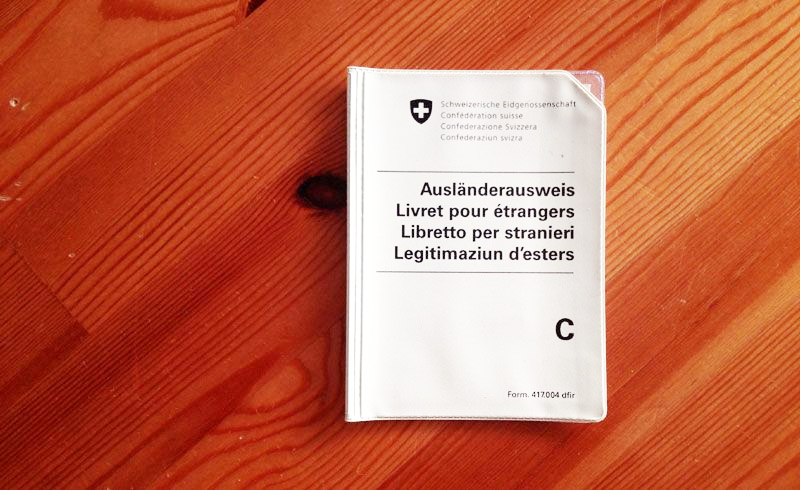If you are in the process of getting a work permit in Switzerland, then you must know that it’s no walk in the park. In fact, obtaining a work visa in Switzerland has become increasingly difficult since 2015.
The reason for this is because the Swiss government recently raised the work permit quota for non-EU/EFTA nationals. The non-EU/EFTA quotas for short-term work permits (L permits) and long-term work permits (B permits) were each reduced by 1,000. And not just that. They also increased the language requirements depending on the sort of visa you’re applying for and complicated the process of visa application. This was done as a counterargument against the backdrop of growing anti-immigration sentiment.
Non-Swiss nationals must now speak and write, at a minimum, at an A1 level in the dominant language of their Swiss canton. Whereas if you are applying for a B-level visa and you don’t speak any of the four official languages, you must at a minimum provide proof of enrollment in a language course.
What does the work permit quota mean?
Non-EU/EFTA nationals who want to live and work in Switzerland should be aware that the Swiss government has permit quotas in place. What this means is that the government only allows a certain number of permits to be distributed every year. Each canton is distributed with a certain number. When the quota is already met, expats must wait another year to apply for the permit. The Swiss government releases a report of these quotas every year.
So is it easy to get a work permit in Switzerland?
It is actually not. But it’s not impossible either, as long as you prepare in advance.
Who can get a work permit in Switzerland?
First things first – when figuring out if you are eligible to apply for a work permit in Switzerland, always check the requirements related to your nationality. You might not need a permit at all.
EU citizens
Switzerland may not be a member of the EU, but it still has set agreements with the EU to regulate the process of immigration. And knowing the quality of life in Switzerland, no wonder people will want to search for better options there. Therefore, if you’re a citizen of an EU country, you can work for up to 90 days in Switzerland without a permit. This means that you can go to Switzerland for up to three months with the purpose of looking for work. That, as long as you register with your local canton (member state) in Switzerland.
Whereas if you want to extend your stay longer than 90 days, you’ll have to get a work permit. Even during this process, EU citizens are exposed to fewer restrictions rather than those outside of the EU.
If you’re an EU citizen applying for a residence permit, you’ll be asked to provide the following documents:
- Valid passport or national ID card
- Copy of a rental agreement to show proof of address
- Passport-sized photos
- An employment contract or details of the self-employed work you intend to undertake (including accounting records)
Non-EU/EFTA state citizens
For third-country nationals (non-EU/EFTA states), you are only eligible to obtain a Swiss work permit if you are highly qualified. Meaning you will only be able to work professional jobs that require higher education, and that will have to be with a job offer that you have received in advance. Only after receiving it, you can apply for a residence and work permit.
The burden of proof that you are a suitable person to obtain a work permit falls upon your employer. He must then send an application to the local cantonal authorities, with further approval required from the State Secretariat for Immigration. They will need to prove that there were no citizens of other EU states who could have been eligible for the job, in order to have the application approved.
Besides professional qualifications, you are also required to fulfill specific other criteria, which facilitate your long-term professional and social integration. These include; professional and social adaptability, knowledge of a language (or languages) and age.
If your application ends up being successful, the immigration authorities of Switzerland will notify your local Swiss embassy. You can then make an appointment and go to complete your application there.
For third-country nationals, these are the documents required to submit your visa application:
- Application form (in some cantons this stage is done online);
- Valid passport;
- Proof that the vacancy was advertised and there were no EU citizens suited to it (using print and internet job adverts for example);
- Resume, proof of qualifications and suitability for the role;
- Reason for the vacancy, such as business expansion, and the detailed description of the position being filled;
- Work contract and terms agreed, which must be at least you comparable to those which might be offered to a Swiss national offered the same position;
Types of work and residence permits in Switzerland
The L-Permit
This type of permit is available for non-EU nationals and EU/EFTA nationals. The L Permit is for short term work of up to 12 months. The L Permit is restricted by quota if the duration is longer than four months. Permits under four months are not restricted by quota. Work permit applications must show they meet educational and work experience requirements (as mentioned above), that they will pay an appropriate salary and that no EU/EFTA candidate is available for the position.
The B-Permit
The B permit is available for non-EU nationals and EU/EFTA nationals. The B permit is valid for up to 12 months, but it is extendable allowing it to cover long term work.
It is restricted by quota if the duration is longer than four months.
Permits under four months are not restricted by quota. Also, if an EU/EFTA worker is on a local CH contract and full Swiss payroll (including social security contributions) their work permit is not restricted by quota. Cantons get a quota entitlement per visa class.
The G-Permit
This permit is only available for workers who are commuting or working cross-border. Third-country nationals will only be given a cross-border commuter G-permit if they have a permanent residence permit in a neighboring country.
They also need to have had their residence in the neighboring country’s border zone for at least six months and fulfill the labor market requirements. G-permits are usually valid for one year and are limited to the border zone of the issuing canton. Third-country border commuters require permission to change jobs or occupations.
The C-Permit
This permit is for those who have been living for ten consecutive years in Switzerland; U.S. and Canadian citizens are an exception – they only have to live for five continuous years to apply for a settlement permit.
There are also F and N visas, and other details related to the application process, which you may find at the State Secretariat for Migration’s web page or at the Federal Office for Migration (FOM).
How long does it take to get a Swiss work permit?
An entry visa will take different times to process depending on the visa type and embassy, which handles the application. The cost will also vary depending on the type of entry visa and country of application. Usually, the work permit is given to you upon arriving in Switzerland. The resident’s permit must be obtained from the Residents Registry office via the local cantonal migration office within 14 days of arrival in Switzerland.
Good luck with your work permit application process!




I don’t know Switzerland language. but I study Switzerland . because I love Switzerland . So, I want studies Switzerland.
Hi Makshudur,
Even if you don’t know German, you can still use other languages there. French, Italian, and Romansh are the other official languages in Switzerland.
Best wishes.